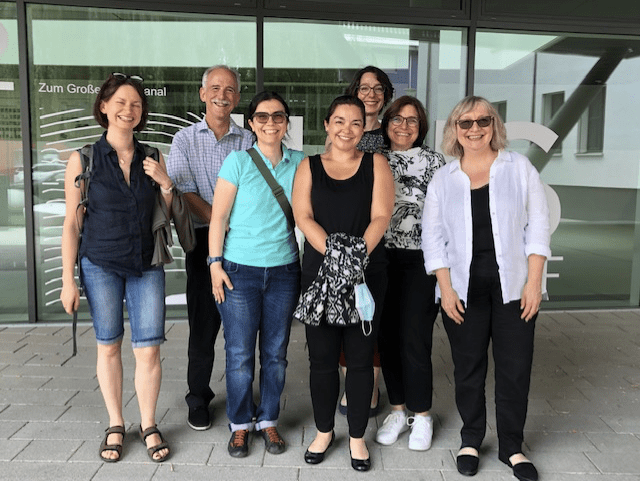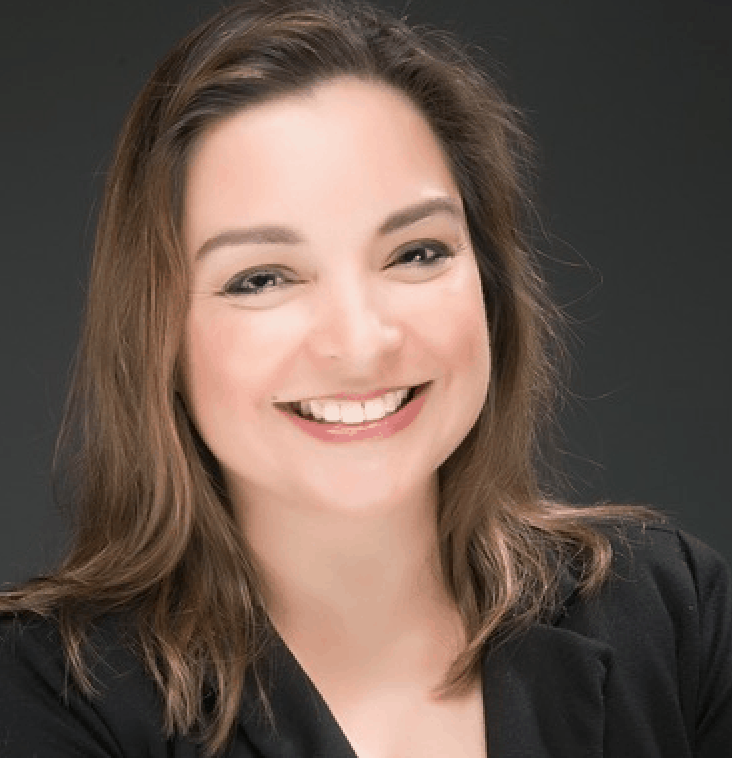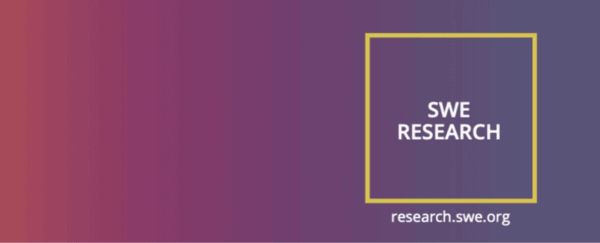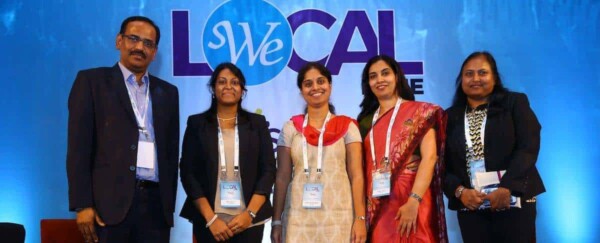In light of the recent lifting of many travel restrictions and more comfort participating with in-person activities, SWE’s efforts to engage with European researchers around issues affecting gender equity in STEM were reignited on July 5, 2022 in Berlin. There, members of the SWE research advisory council met with individuals from various organizations and institutions in Germany, Austria, and Belgium to discuss their experiences working and studying in STEM. Through these discussions, we were able to compare experiences from the United States with those in certain European countries.

The July 5 meeting was a follow-up to an earlier roundtable discussion, held in May 2019 in conjunction with WE Local Berlin, in which SWE hosted individuals from the SWE research advisory council and colleagues from Germany, Romania, and Austria. In addition to developing a clearer understanding of issues affecting women’s recruitment and retention in STEM outside of the United States, one of the desired outcomes from that meeting was to establish relationships with academic faculty and staff in Europe.
In 2019 we were fortunate to connect with Rishelle Wimmer, MA, a senior lecturer at Salzburg University of Applied Sciences, and Caterina Cocchi, Ph.D., a professor at Humboldt-Universität zu Berlin. Both agreed to join the SWE research advisory council and have since been serving as a valuable resource on SWE’s international research activities. Additionally, Wimmer joined the SWE editorial board, where she brings a broader perspective to content development.
Representing the SWE advisory council at the July 5 roundtable discussion:
- Caterina Cocchi, Ph.D., Full Professor, Physics, at the Carl von Ossietzky Universität in Oldenburg
- Peter Meiksins, Ph.D., Professor Emeritus of Sociology at Cleveland State University, lead author of the annual SWE literature review
- Anne Perusek, Director of Editorial and Publications, Society of Women Engineers
- Roberta Rincon, Ph.D., Associate Director of Research, Society of Women Engineers
- Rishelle Wimmer, MA, Senior Lecturer, Information Technology and Systems Management, Fachhochschule Salzburg University of Applied Sciences
We were joined in our discussion by:
- Petra Metz, Ph.D., Program Manager, Women in Natural Sciences (WiNS) Adlershof, Humboldt-Universität zu Berlin
- Vita Soloyeva, Ph.D., Technical Director of Electron Microsopy Service Unit at Carl von Ossietzky Universität in Oldenburg
- Bénédicte Losseau, Partner at Exempla Management and Consulting in Belgium
We had expected more participants, but COVID still managed to prevent some people from attending at the last minute. Regardless, the conversation was robust around three main questions:
- Are initiatives to increase women’s representation in STEM working?
- What is your perspective on the paradigm shift that we have observed, from a focus on gender issues to one on diversity issues?
- Are there topics that researchers have overlooked when it comes to increasing diversity, equity, and inclusion in STEM?
In general, everyone in attendance was surprised by how many of the same issues affecting women’s recruitment and career advancement were experienced by women in both the U.S. and Europe. From the U.S. perspective, we often consider Europe to be further along when it comes to address gender inequities, given the efforts being made under the United Nations’ Sustainable Development goals and more generous family leave policies that are available to employees in many European countries. But it was clear during our meeting that gender bias in the workplace creates a less welcoming environment for women in STEM, regardless of location. Women’s underrepresentation in STEM is a bit circular; with few women in faculty and STEM workspaces, it is less appealing to those who are entering the profession to stay. And if they choose to leave, we are challenged in creating STEM workplaces that support women’s retention and advancement.

After our roundtable discussion, we were invited to meet with students from Humboldt-Universität zu Berlin and the dean, Caren Tischendorf, Ph.D., to gain insight into the issues that future women scientists are concerned about as they complete their education and enter the workforce. Much of the discussion centered on work-family balance, with some students questioning whether it is realistically possible for a woman in STEM to reach their career goals while also having a family. These concerns mirror what the research shows is also on the minds of women in the U.S., highlighting the need to continue pushing for fair performance evaluations, reasonable work hours balanced with availability of quality childcare resources, and equal access to advancement opportunities.

We look forward to sharing more details from our roundtable discussion in the next SWE Magazine State of Women in Engineering issue in March 2023!
Authors
-

SWE Blog provides up-to-date information and news about the Society and how our members are making a difference every day. You’ll find stories about SWE members, engineering, technology, and other STEM-related topics.
-

-

Roberta Rincon oversees SWE's research activities on gender equity issues affecting girls and women in engineering, from school to career.






